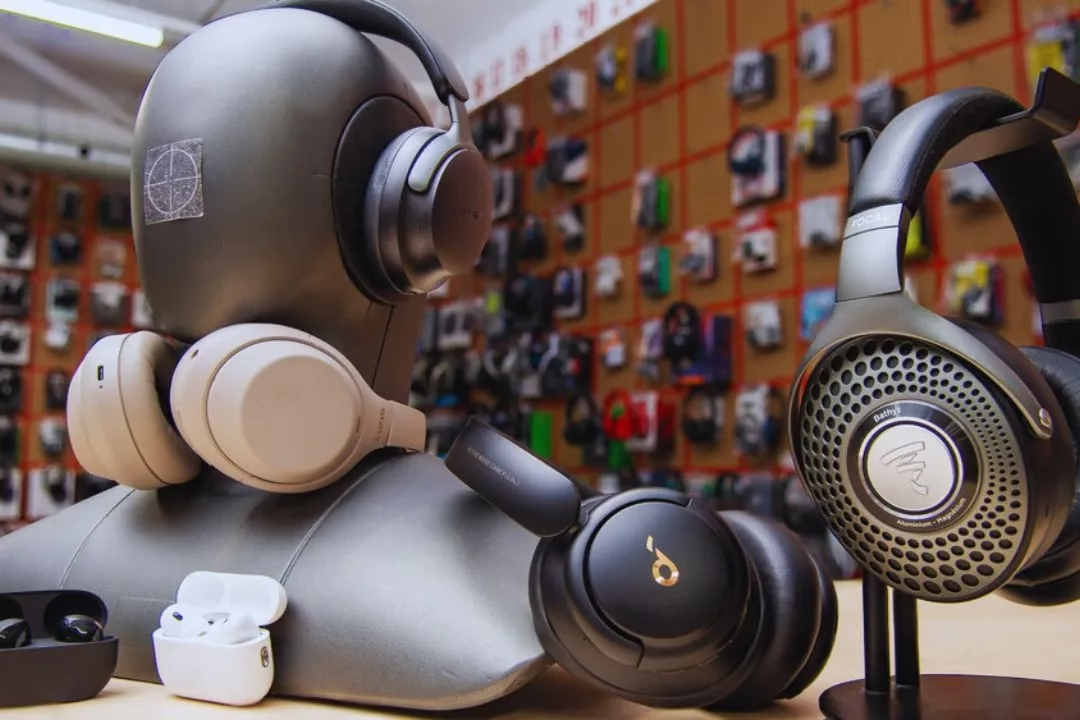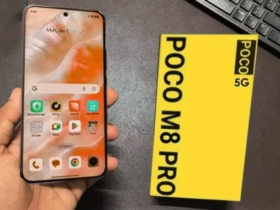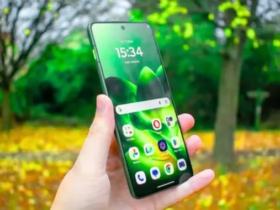Technology is evolving rapidly, and headphones are no longer just devices to listen to music or take calls. Today, smart headphones are reshaping the way we connect with entertainment, productivity, and even health. These headphones go beyond delivering sound—they bring intelligent features such as voice assistants, noise cancellation, gesture control, adaptive sound, and sometimes fitness tracking.
We’ll explore the price, features, specifications, and reviews of smart headphones, giving you a human-touch overview of how they are changing the future of audio. Whether you’re a music lover, gamer, frequent traveler, or fitness enthusiast, this guide will help you understand why smart headphones are worth your attention.
Smart Headphones Price Range
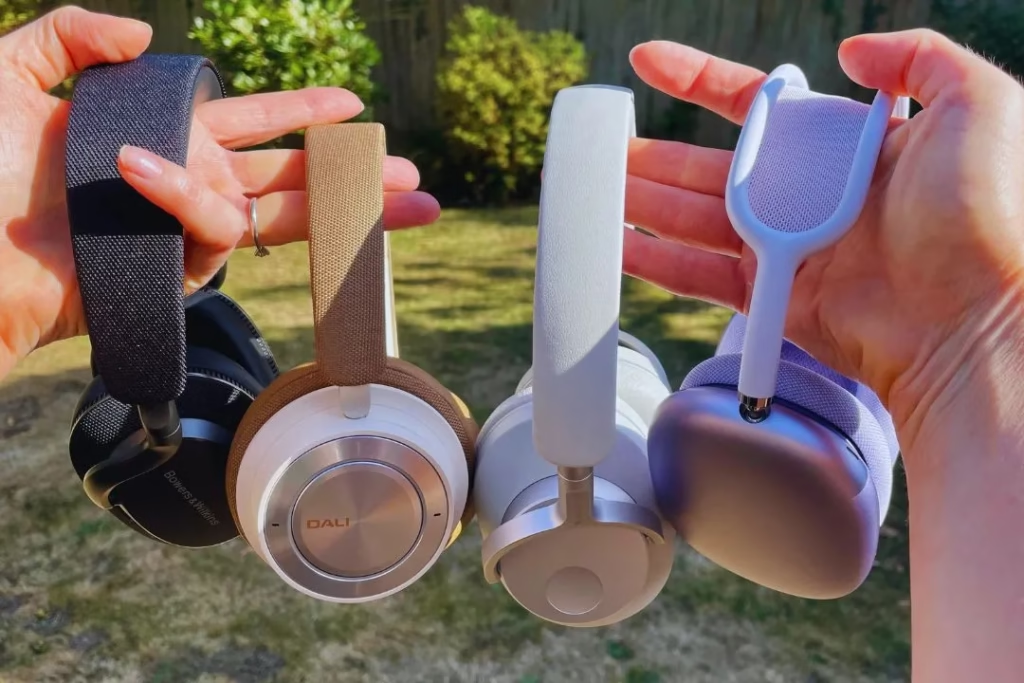
When it comes to pricing, smart headphones are available in a wide range depending on the features, build quality, and brand reputation. Some are designed for budget-conscious users, while others are crafted for audiophiles who demand perfection.
Here’s a quick look at how prices vary across different categories:
| Category | Price Range | Key Features | Example Brands/Models |
| Budget | $50 – $100 | Bluetooth, basic smart features | Realme, Anker, Skullcandy |
| Mid-Range | $100 – $250 | Noise cancellation, voice support | JBL, Marshall, Sony mid-tier |
| Premium | $250 – $600+ | Advanced ANC, premium build, smart sensors | Sony WH-1000XM5, Apple AirPods Max, Bose 700 |
There’s a smart headphone option for every budget and need. If you want something affordable, you’ll find great entry-level options. But if you’re ready to invest more, premium models deliver unmatched sound and advanced intelligence.
Smart Headphones Features That Stand Out
Smart headphones are not just about listening—they’re about interaction, adaptability, and convenience. Here are the features that set them apart:
1. Active Noise Cancellation (ANC)
Block out the world with ANC. Perfect for travelers, office workers, and anyone who values focus.
2. Voice Assistant Support
Hands-free control with Google Assistant, Siri, or Alexa, allowing you to make calls, check the weather, or change tracks with your voice.
3. Gesture and Touch Controls
Swipe, tap, or even nod your head to change songs, adjust volume, or answer calls.
4. Fitness and Health Tracking
Some advanced models measure heart rate, steps, and calories burned, turning headphones into wearable health monitors.
5. Adaptive Sound
Automatically adjusts volume based on your surroundings, ensuring a personalized listening experience.
6. Long Battery Life with Fast Charging
From 15 hours on budget models to 40+ hours on premium ones, smart headphones make sure you’re always connected.
Smart Headphones Specs You Should Check Before Buying
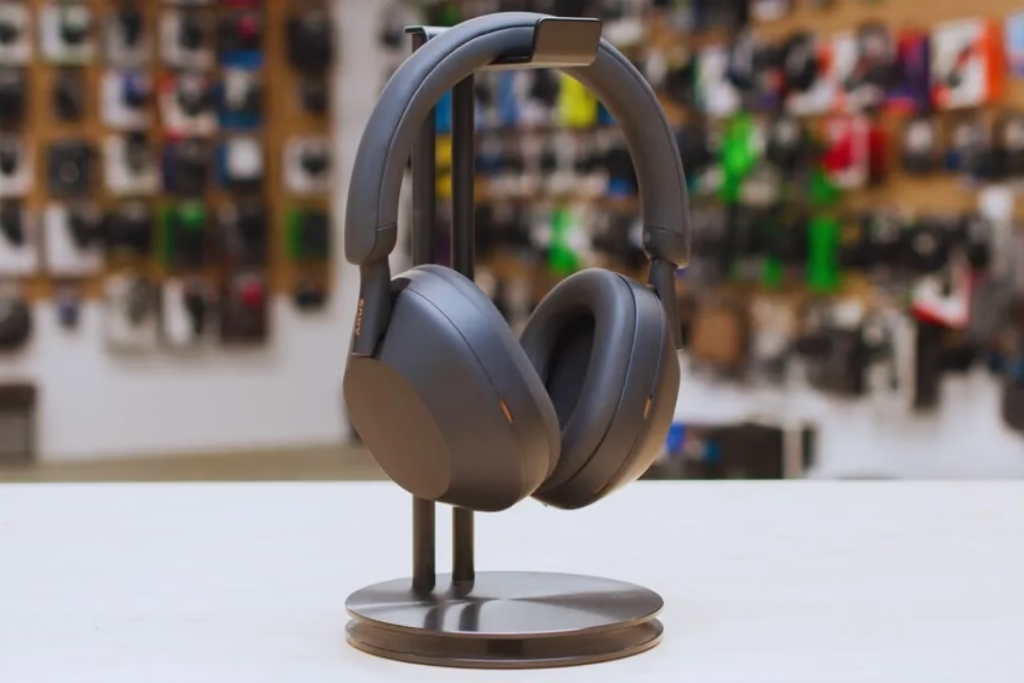
Not all headphones are created equal. Specs can make or break your experience. Here are the important specifications to consider:
- Connectivity: Most use Bluetooth 5.0 or higher, ensuring stronger connections and lower latency. Some premium models include NFC pairing.
- Battery Life: Ranges from 15 to 40 hours. Look for quick charging (10 minutes charge = 5 hours playback).
- Microphones: Multiple mics ensure better call quality and noise isolation.
- Drivers: 30mm to 50mm drivers offer deep bass and crisp highs.
- Water Resistance: Useful if you plan to use them during workouts or outdoors.
- Weight & Comfort: Lightweight build with cushioned earcups ensures long-wear comfort.
Smart Headphones Review – What Users Say
Reviews from real users often give the clearest insight. Let’s break it down:
- Sound Quality: Premium models like the Sony WH-1000XM5 and Bose 700 are praised for studio-level clarity and deep bass.
- Comfort: Apple’s AirPods Max stand out with their breathable mesh headband, though some users find them heavy.
- Battery Performance: Anker Soundcore Life Q35 offers 40 hours of playtime at a fraction of the cost.
- Durability: Budget models sometimes compromise on build quality, but brands like JBL and Marshall provide reliable mid-range durability.
- Smart Features: Users love adaptive sound and gesture control, though some still prefer physical buttons for precision.
In general, smart headphones have received positive feedback, especially for blending technology with lifestyle convenience.
Best Smart Headphones in the Market Right Now
If you’re wondering which models are worth your money, here are the top picks:
- Sony WH-1000XM5 – Best overall noise cancellation and sound quality.
- Apple AirPods Max – Perfect for Apple users with seamless ecosystem integration.
- Bose 700 – Stylish design with premium audio clarity.
- Anker Soundcore Life Q35 – Budget-friendly with excellent battery life.
- JBL Tour One – Balanced performance for music lovers.
Why Choose Smart Headphones Over Traditional Ones?
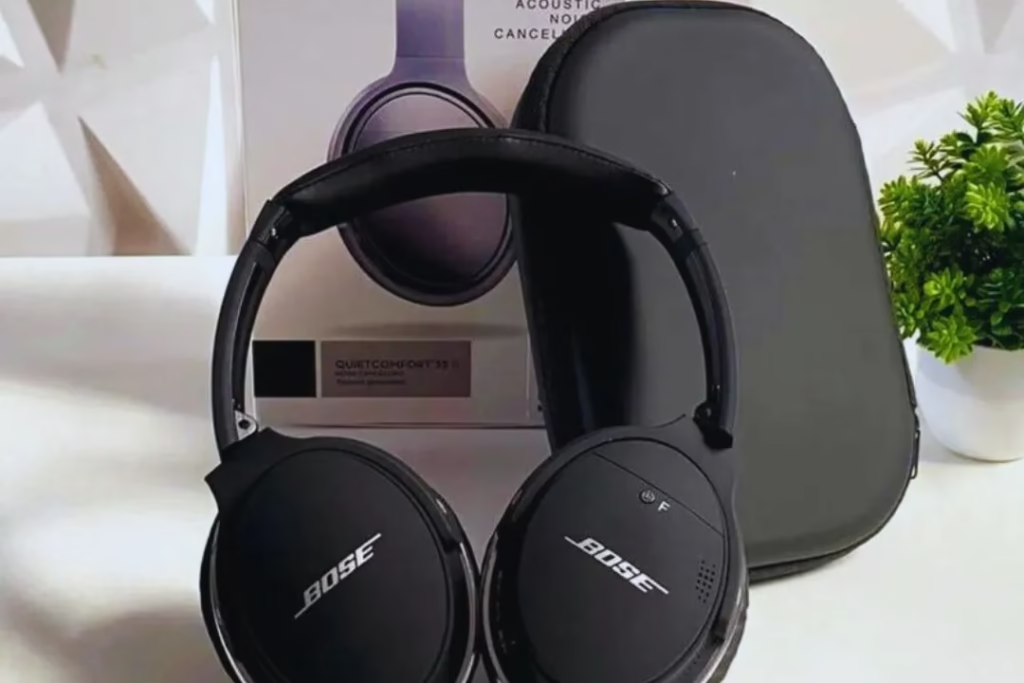
The question is simple: Why go smart? Here’s why:
- Convenience: No wires, no hassle.
- Productivity: Voice assistants make multitasking easier.
- Versatility: Great for work, play, and fitness.
- Future-Ready: Smart features like real-time translation are paving the way for tomorrow’s audio tech.
Tips to Pick the Right Smart Headphones
Before you hit “buy,” consider these tips:
- Budget: Decide how much you’re willing to invest.
- Purpose: Music, calls, fitness, or travel? Different models serve different needs.
- Battery Life: Frequent travelers should prioritize long battery life.
- Brand Reputation: Premium brands often guarantee longer durability and updates.
FAQs about Smart headphones
Q1. What makes smart headphones different from normal headphones?
Ans: Smart headphones combine high-quality audio with advanced features like noise cancellation, voice assistant integration, and adaptive sound. Unlike normal headphones, they offer smarter control, better connectivity, and in some cases even fitness tracking.
Q2. What is the average price of smart headphones?
Ans: Prices for smart headphones vary widely. Entry-level models start around $50, mid-range options cost between $100–$250, while premium brands like Sony and Apple can exceed $500. The price usually reflects build quality, sound performance, and smart features.
Q3. Do smart headphones work with all smartphones?
Ans: Yes, smart headphones are designed to work with most Bluetooth-enabled devices, including Android and iOS phones. While basic features like music playback and calls are universal, brand-specific functions such as Siri or Google Assistant may work best in their own ecosystems.
Q4. Can smart headphones track health like smartwatches?
Ans: Some high-end smart headphones are equipped with sensors that can monitor heart rate, calories burned, or even steps. However, most models are primarily focused on sound and connectivity, so they don’t replace dedicated fitness trackers or smartwatches.
Q5. Which brand makes the best smart headphones?
Ans: Leading brands like Sony, Bose, and Apple dominate the premium market with advanced ANC and superior sound quality. For budget buyers, JBL and Anker offer affordable options without compromising much on performance or battery life.
Q6. How long does the battery last on smart headphones?
Ans: Battery life depends on the model and usage. Budget models may last 12–20 hours, while premium ones can provide 30–40 hours of continuous playback. Many also feature fast charging, giving several hours of use with just a short charge.
Q7. Are smart headphones worth buying in 2025?
Ans: Yes, smart headphones are worth the investment because they blend convenience, modern technology, and superior sound. With features like adaptive noise cancellation, voice assistants, and long battery life, they enhance everyday productivity, travel, and entertainment.
Final thoughts
Smart headphones are no longer luxury gadgets—they are becoming everyday essentials. With AI-powered features, noise cancellation, adaptive sound, and fitness tracking, they’re revolutionizing the way we experience music and productivity. Whether you’re looking for a budget model for casual listening or a premium option for immersive experiences, there’s a smart headphone tailored to your lifestyle. Choosing the right one depends on your needs, but one thing is certain—smart headphones are here to stay and will only get smarter.

